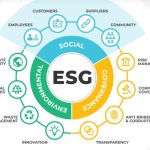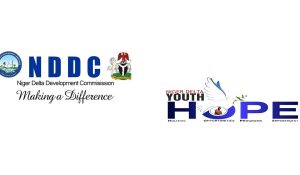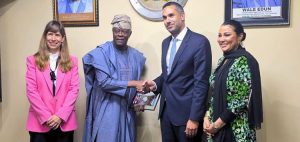
One last word on World Population Day
Nigeria’s projected population growth is staggering, with the country expected to become the world’s third most populous nation by 2051, reaching approximately 390.93 million by 2053. This immense growth brings significant implications for sustainability. Resource depletion is a primary concern, as a larger population will demand more water, food, and energy. Nigeria, already facing resource constraints, could experience increased shortages and heightened competition for these essentials. Additionally, environmental degradation is a likely consequence, with urban expansion potentially leading to deforestation, loss of biodiversity, and increased pollution.
The economic strain of such growth cannot be overlooked; while a larger workforce can drive economic benefits, it also places considerable pressure on infrastructure, healthcare, education, and social services. Without strategic planning, economic development may be hampered by the sheer scale of population growth.
Social challenges will also intensify. High population growth can exacerbate issues like unemployment, poverty, and inequality, and may lead to rapid urbanization with many people living in informal settlements that lack basic services. Climate change poses another critical challenge, as a larger population contributes to higher greenhouse gas emissions, compounding environmental issues.
In this context, the Sustainable Development Goals (SDGs) offer a framework to address these challenges. SDG 1, which aims to eradicate poverty, underscores the need for economic opportunities to keep pace with population growth. SDG 2 focuses on zero hunger, highlighting the necessity of improving agricultural productivity and sustainable farming practices. Ensuring good health and well-being, as emphasized by SDG 3, requires a robust healthcare system to cater to an increasing population. SDG 4’s call for quality education necessitates significant investment in educational infrastructure to accommodate the growing number of children.
Access to clean water and sanitation, as outlined in SDG 6, is vital for a growing population, necessitating sustainable water management practices. SDG 7 underscores the importance of affordable and clean energy, urging investment in renewable energy sources to meet increasing energy demands sustainably. Urban planning, emphasized by SDG 11, must focus on creating sustainable, resilient, and inclusive cities to accommodate population growth. Addressing climate change, as per SDG 13, becomes even more critical, requiring robust mitigation and adaptation strategies.
Given these projected growth figures, Nigeria must develop a strategic population plan that aligns with the SDGs. Such a plan should promote family planning and education on reproductive health to manage population growth rates. Investing in infrastructure, particularly in healthcare, education, and transportation, is essential to support the expanding population. Sustainable resource management policies must be implemented to ensure the long-term availability of water, energy, and food. Economic diversification is crucial to reduce poverty and unemployment, ensuring that economic growth can keep pace with population increases. Effective urban planning strategies are needed to manage urbanization and prevent the proliferation of informal settlements. Lastly, building climate resilience into development plans is vital to protect vulnerable populations from the impacts of climate change.
As the world celebrates World Population Day, it is imperative for Nigeria to recognize the importance of strategic population planning within the framework of sustainable development. The implications of the projected population growth are significant and addressing them requires a comprehensive approach aligned with the SDGs. By implementing a strategic population plan, Nigeria can ensure a sustainable future for its growing population, balancing economic development with environmental protection and social well-being.









